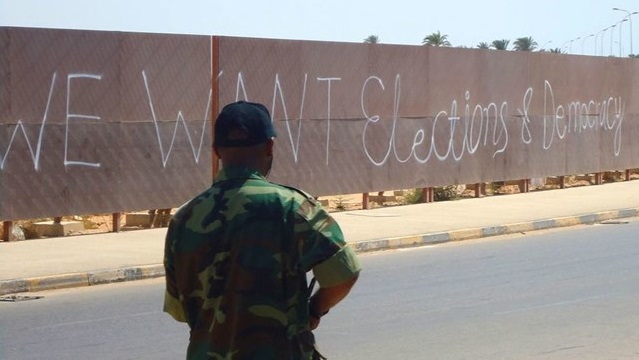The uncertainty related to the peace process in Libya increased on Monday, December 27, after the Libyan parliament postponed a vote to fix a new date for the presidential elections. The High National Electoral Commission (HNEC), after claiming it is impossible to conduct elections as scheduled on December 24, had last week proposed January 24 as the new date for the elections.
Meanwhile, the Libyan parliament also objected to what it called continued external interference in its internal affairs by countries like the UK after its embassy in Tripoli issued a statement demanding early elections. The UK had also signed a joint statement issued by the US, France, Germany and Italy on December 25, demanding the same.
Reacting to the statement, the Libyan parliament said that everyone must respect its decisions and refrain from making unnecessary comments, Al-Mayadeen reported.
On Monday, instead of voting on the proposed new date, the parliament debated recommendations made by its committee charged with the elections. The parliamentary committee presented a report saying that the proposed date of January 24 will have a similar fate as the earlier date as it was set according to political considerations.
The parliamentary committee instead recommended abandoning the present political process and adopting a new one, along with changes in the interim administration led by prime minister Abdulhamid Dbeibah. It also proposed the formation of a constituent committee which will prepare a new constitution.
Libya has had no constitution since long-time ruler Muammar Gaddafi suspended the last one in 1969. Gaddafi was overthrown in 2011 after a US-led NATO invasion of the country. This also led to war among different groups trying to take control over the country’s government.
Political process
The now postponed elections were supposed to be the culmination of a year-long political process called the Libyan Political Dialogue Forum sponsored by the UN Support Mission in Libya (UNSMIL). A permanent ceasefire was agreed upon by all the parties in October 2020 and a new interim administration was approved by the Libyan parliament in February. The interim administration, consisting of a presidential council and a cabinet led by Dbeibah, was charged with holding the national elections and handing over governance to the newly-elected administration.
However, due to disagreements over the electoral law approved by speaker of the parliament Aguila Saleh in September and the deadlock caused by the candidacies of several controversial figures such as Khalifa Haftar and Saif al-Islam Gaddafi, the elections were postponed.
UN secretary-general Antonio Guterres also reiterated the need to hold early elections in the country. His special representative Stephanie Williams also claimed that Libyans want early elections.
According to the UN, around 2.8 million Libyans have registered to vote so far out of a total population of around seven million.





